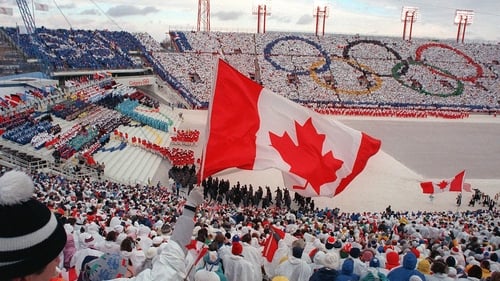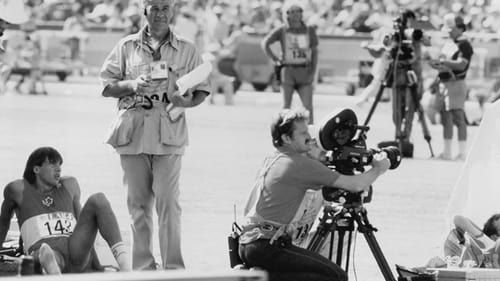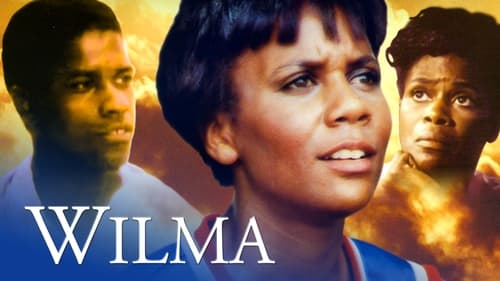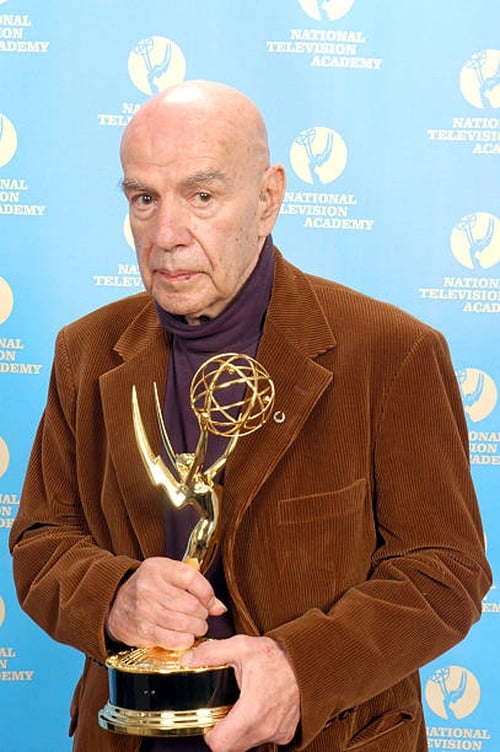Bud Greenspan
Nascimento : 1926-09-18, New York City, New York, USA
Morte : 2010-12-25
História
A film director, writer, and producer known for his sports documentaries. His distinctive appearance in later years included wearing his large, dark-framed glasses atop his shaved head.

Producer
A documentary covering the 2010 Olympic Games in Vancouver.

Producer
A documentary covering the 2006 Olympic Games in Turin.

Director
A documentary covering the 2006 Olympic Games in Turin.

Director
A documentary covering the 2004 Olympic Games in Athens.

Writer
Award-winning sports chronicler Bud Greenspan delivers a powerful and emotional look at six individual stories in the official film of the 2002 Olympic Winter Games in Salt Lake City. Greenspan goes beyond highlight footage to tell the story of how these athletes overcome incredible obstacles to achieve Olympic glory.

Producer
Award-winning sports chronicler Bud Greenspan delivers a powerful and emotional look at six individual stories in the official film of the 2002 Olympic Winter Games in Salt Lake City. Greenspan goes beyond highlight footage to tell the story of how these athletes overcome incredible obstacles to achieve Olympic glory.

Director
Award-winning sports chronicler Bud Greenspan delivers a powerful and emotional look at six individual stories in the official film of the 2002 Olympic Winter Games in Salt Lake City. Greenspan goes beyond highlight footage to tell the story of how these athletes overcome incredible obstacles to achieve Olympic glory.

Self
The 1972 Olympic men's basketball final, in which Team USA was accorded their first ever loss since the sport was adopted in competition, was one of the most controversial events in history the history of the Games.

Writer
A documentary covering the 2000 Olympic Games in Sydney.

Producer
A documentary covering the 2000 Olympic Games in Sydney.

Director
A documentary covering the 2000 Olympic Games in Sydney.

Self
Fists of Freedom examines one of the 20th century’s most memorable moments — the dramatic “Black Power” demonstration of American sprinters Tommie Smith and John Carlos on the victory stand at the 1968 Summer games in Mexico City. Using rare footage, archival photos and interviews with key figures from the era, revisit a pivotal event in American history.

Director
A medalha de ouro para a corrida masculina dos 10,000 metros nas Olimpíadas de Atlanta de 1996 vai para o etiópio Haile Gebrselassie.

Producer
A documentary covering the 1998 Winter Olympic Games in Nagano.

Writer
A documentary covering the 1998 Winter Olympic Games in Nagano.

Director
A documentary covering the 1998 Winter Olympic Games in Nagano.

Producer
A documentary covering the 1996 Olympic Games in Atlanta.

Writer
A documentary covering the 1996 Olympic Games in Atlanta.

Director
A documentary covering the 1996 Olympic Games in Atlanta.

Producer
This comprehensive HBO presentation documents the history of heavyweight boxing through the 20th century, beginning with Jess Willard's victory over Jack Johnson in the early 1900s and running through the reign of the controversial Mike Tyson.

Writer
This comprehensive HBO presentation documents the history of heavyweight boxing through the 20th century, beginning with Jess Willard's victory over Jack Johnson in the early 1900s and running through the reign of the controversial Mike Tyson.

Director
This comprehensive HBO presentation documents the history of heavyweight boxing through the 20th century, beginning with Jess Willard's victory over Jack Johnson in the early 1900s and running through the reign of the controversial Mike Tyson.

Producer
A documentary covering the 1994 Olympic Games in Lillehammer.

Writer
A documentary covering the 1994 Olympic Games in Lillehammer.

Director
A documentary covering the 1994 Olympic Games in Lillehammer.

Producer
A documentary covering the 1988 Olympic Games in Calgary.

Writer
A documentary covering the 1988 Olympic Games in Calgary.

Director
A documentary covering the 1988 Olympic Games in Calgary.

Director
The definitive photographic record of the 1984 Los Angeles Olympics, told "from the inside" through the lives of the participants, the words of David Perry, and the singing voice of Placido Domingo. From the opening to closing ceremonies, this unique style of storytelling shows a side of the Olympic Games not seen by television audiences.

Producer
The story of American track sprinter Wilma Rudolph, who overcame physical handicaps to win three gold medals in the 1960 Olympics.

Writer
The story of American track sprinter Wilma Rudolph, who overcame physical handicaps to win three gold medals in the 1960 Olympics.

Director
The story of American track sprinter Wilma Rudolph, who overcame physical handicaps to win three gold medals in the 1960 Olympics.

Producer
The rise of National Socialism in Germany and Hitler’s anti-semitic policies and advocation of the superiority of the Aryan race resulted in several calls for a boycott of the games. Against this political backdrop, Jesse Owens’ haul of four gold medals is all the more significant. For a black athlete to demonstrate clearly his superior athleticism and so convincingly outperform his white counterparts was a massive slap in the face for Hitler and made a mockery of his racist theories during his Nazi showpiece games. Standing in the box at the Olympiastadion where Hitler sat to watch the games, Jesse Owens tells with pride that the flag of the US team was the only one not to be dipped as the athletes passed the Führer. (andberlin.com)

Writer
The rise of National Socialism in Germany and Hitler’s anti-semitic policies and advocation of the superiority of the Aryan race resulted in several calls for a boycott of the games. Against this political backdrop, Jesse Owens’ haul of four gold medals is all the more significant. For a black athlete to demonstrate clearly his superior athleticism and so convincingly outperform his white counterparts was a massive slap in the face for Hitler and made a mockery of his racist theories during his Nazi showpiece games. Standing in the box at the Olympiastadion where Hitler sat to watch the games, Jesse Owens tells with pride that the flag of the US team was the only one not to be dipped as the athletes passed the Führer. (andberlin.com)

Director
The rise of National Socialism in Germany and Hitler’s anti-semitic policies and advocation of the superiority of the Aryan race resulted in several calls for a boycott of the games. Against this political backdrop, Jesse Owens’ haul of four gold medals is all the more significant. For a black athlete to demonstrate clearly his superior athleticism and so convincingly outperform his white counterparts was a massive slap in the face for Hitler and made a mockery of his racist theories during his Nazi showpiece games. Standing in the box at the Olympiastadion where Hitler sat to watch the games, Jesse Owens tells with pride that the flag of the US team was the only one not to be dipped as the athletes passed the Führer. (andberlin.com)






